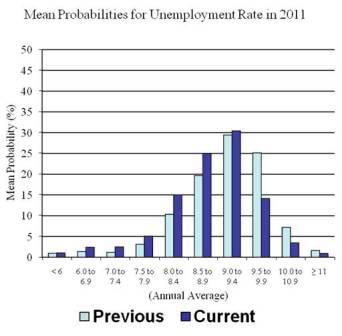 WASHINGTON (AP) -- Strong second-quarter earnings from McDonald's, General Electric and Caterpillar on Friday are just the latest proof that booming profits have allowed Corporate America to leave the Great Recession far behind.
WASHINGTON (AP) -- Strong second-quarter earnings from McDonald's, General Electric and Caterpillar on Friday are just the latest proof that booming profits have allowed Corporate America to leave the Great Recession far behind.
But millions of ordinary Americans are stranded in a labor market that looks like it's still in recession. Unemployment is stuck at 9.2 percent, two years into what economists call a recovery. Job growth has been slow and wages stagnant.
"I've never seen labor markets this weak in 35 years of research," says Andrew Sum, director of the Center for Labor Market Studies at Northeastern University.
Wages and salaries accounted for just 1 percent of economic growth in the first 18 months after economists declared that the recession had ended in June 2009, according to Sum and other Northeastern researchers.
In the same period after the 2001 recession, wages and salaries accounted for 15 percent. They were 50 percent after the 1991-92 recession and 25 percent after the 1981-82 recession.
Corporate profits, by contrast, accounted for an unprecedented 88 percent of economic growth during those first 18 months. That's compared with 53 percent after the 2001 recession, nothing after the 1991-92 recession and 28 percent after the 1981-82 recession.
What's behind the disconnect between strong corporate profits and a weak labor market? Several factors:
- U.S. corporations are expanding overseas, not so much at home. McDonalds and Caterpillar said overseas sales growth outperformed the U.S. in the April-June quarter. U.S.-based multinational companies have been focused overseas for years: In the 2000s, they added 2.4 million jobs in foreign countries and cut 2.9 million jobs in the United States, according to the Commerce Department.
- Back in the U.S., companies are squeezing more productivity out of staffs thinned out by layoffs during Great Recession. They don't need to hire. And they don't need to be generous with pay raises; they know their employees have nowhere else to go.
- Companies remain reluctant to spend the $1.9 trillion in cash they've accumulated, especially in the United States. They're unconvinced that consumers are ready to spend again with the vigor they showed before the recession, and they are worried about uncertainty in U.S. government policies.
"Lack of clarity on a U.S. deficit-reduction plan, trade policy, regulation, much needed tax reform and the absence of a long-term plan to improve the country's deteriorating infrastructure do not create an environment that provides our customers with the confidence to invest," Caterpillar CEO Doug Oberhelman said.
Caterpillar said second-quarter earnings shot up 44 percent to $1.02 billion- though that still disappointed Wall Street. General Electric's second-quarter earnings were up 21 percent to $3.76 billion. And McDonald's quarterly earnings increased 15 percent to $1.4 billion.
Still, the U.S. economy is missing the engines that usually drive it out of a recession.
Carl Van Horn, director of the Center for Workforce Development at Rutgers University, says the housing market would normally revive in the early stages of an economic recovery, driving demand for building materials, construction workers and appliances. But that isn't happening this time.
And policymakers in Washington have chosen to focus on cutting federal spending to reduce huge federal deficits instead of spending money on programs to create jobs: "If we want the recovery to strengthen, we can't be doing that," says Chad Stone, chief economist at the Center on Budget and Policy Priorities.
For now, corporations aren't eager to hire or hand out decent raises until they see consumers spending again. And consumers, still paying down the debts they ran up before the recession, can't spend freely until they're comfortable with their paychecks and secure in their jobs.
Said Van Horn: "I don't think there's an easy way out."
© 2011 The Associated Press. All rights reserved. This material may not be published, broadcast, rewritten or redistributed. Learn more about our Privacy Policy and Terms of Use.
Portland and Seattle
Free Subscription to Breaking News
Free Subscription to Breaking News



















































































































































































































































































































































